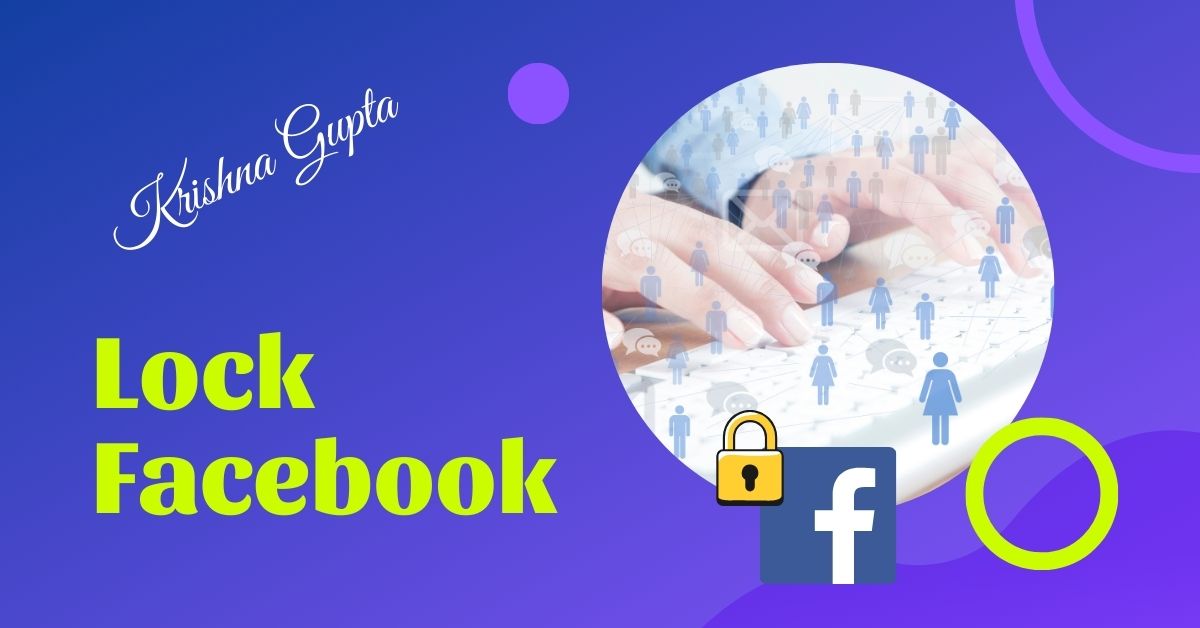Locking Down Your Data: Why Every C-Suite Needs Facebook Profile Privacy
In today’s hyper-connected world, executives understand social media’s power to build brand reputation and professional networks. However, unfettered access to your Facebook profile can pose significant security risks. This is where Facebook’s profile lock feature is a powerful tool for C-Suite leaders to enhance their online information security posture and mitigate potential damage.
Why Lock Down Your Profile? The Business Case for Privacy
Consider a scenario where a competitor gains access to sensitive information about your upcoming product launch from a public Facebook post. Or imagine a disgruntled ex-employee tarnishing your reputation with misleading comments visible to your entire network. These are just a few examples of how an open Facebook profile can expose you and your company to unnecessary risk.
By locking your profile, you create a robust defence. This significantly reduces the attack surface for social engineering attempts and data breaches. The result? A demonstrably improved security posture, safeguarding your brand reputation and potentially averting costly public relations disasters.
Beyond Reputation: Protecting Sensitive Information
C-Suite executives often handle confidential business information. Leaving your profile open inadvertently exposes details about your professional activities, board memberships, or even travel plans. Locking your profile ensures that only trusted connections can access this information, minimising the risk of accidental leaks and protecting your company’s strategic edge.
Who Needs a Locked Profile? Every C-Level Leader
In today’s digital age, information security is no longer an IT department concern – it’s a boardroom imperative. C-Suite executives are prime targets for cybercriminals and online harassment. Locking your Facebook profile empowers you to take control of your online presence, projecting a professional image while safeguarding sensitive data.
Who Doesn’t Need a Locked Profile? Building Bridges, Not Walls
While locking your profile offers significant benefits, it’s not for everyone. If your strategy hinges on building a large public following or fostering connections with a broad audience, a locked profile might hinder your efforts.
Taking Action: A Simple Step for Maximum Security
Locking your Facebook profile is a simple process that can be done in just a few minutes. The enhanced security and control it offers are invaluable for C-Suite executives. This critical step demonstrates a commitment to information security and protecting your company’s reputation – a robust ROI on a simple action.
Locking Down Your Privacy: All About Facebook Profile Locking
Ever feel like your Facebook profile is a little too exposed? You’re not alone. With constant updates and a vast online audience, it’s natural to want to control who sees your information. That’s where Facebook profile locking comes in.
What is it?
Facebook profile locking is a feature that restricts access to your profile information for people who aren’t your friends. When enabled, users not on your friend list will see a limited version of your profile, typically including your profile picture (with a blurry overlay), cover photo, and basic information like your name. They won’t be able to see your posts, photos you’re tagged in, or any other details you’ve shared.
Why Lock Your Profile?
There are several reasons why you might want to lock your Facebook profile:
- Increased Privacy: This is the most apparent benefit. Locking your profile gives you more control over who sees your information.
- Limited Audience: If you use Facebook for personal updates and mainly connect with friends and family, locking your profile ensures only those you know see your posts.
- Reduced Spam: Public profiles are magnets for spam and unwanted friend requests. Locking your profile can help minimise these annoyances.

Who Should Lock Their Profile?
- Anyone who values their privacy and wants to control who sees their information.
- People who share personal content on Facebook only want friends and family to see it.
- Those who frequently receive spam friend requests or unwanted messages.
Who Shouldn’t Lock Their Profile?
- Businesses or Public Figures: A locked profile might hinder your reach if you use Facebook for professional purposes or to connect with a large audience.
- People who rely on Facebook for dating or networking: Locking your profile might make it difficult for potential connections to find you.
Locking your profile is a simple way to take control of your Facebook privacy. Consider your profile usage and comfort level to decide if it’s the right choice for you.
Here are some other privacy-enhancing features on Facebook that can be valuable for C-Suite executives:
- Privacy Settings Review: Facebook offers a comprehensive privacy settings menu. A periodic review of these settings allows you to fine-tune who can see your posts, friend requests, and other profile information.
- Two-Factor Authentication (2FA): This extra security layer requires a secondary login code beyond your password, significantly reducing the risk of unauthorised access.
- Manage Login Approvals: Enable login notifications to be alerted anytime someone tries to access your Facebook account from a new device. This allows you to take action if it’s a fraudulent attempt immediately.
- Limit Profile Audience: Control who sees your future posts by selecting specific audiences (e.g., Friends Only) or customising privacy settings for each post.
- Off-Facebook Activity: Facebook allows you to manage and limit the data collected about your activity on other websites and apps. This can help minimise the information used for targeted advertising.
- Manage Location Sharing: Control how and when Facebook shares your location data. Consider selectively disabling location tagging on posts or using the “Friends Only” option.
- Review Tagged Posts: Before a tagged post appears on your timeline, you can choose to approve or remove the tag. This allows you to control what information is associated with your profile.
- Download Your Information: Facebook allows you to download a copy of all your data, including posts, photos, and messages. This can be a valuable backup or useful for data analysis purposes.
Implementing these features and profile locking allows C-Suite executives to create a more secure and private Facebook experience that minimises risks and protects their online identities.